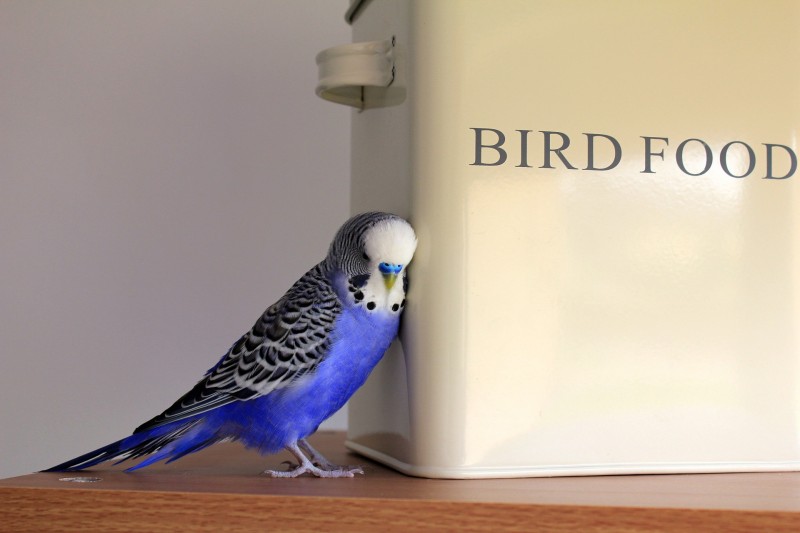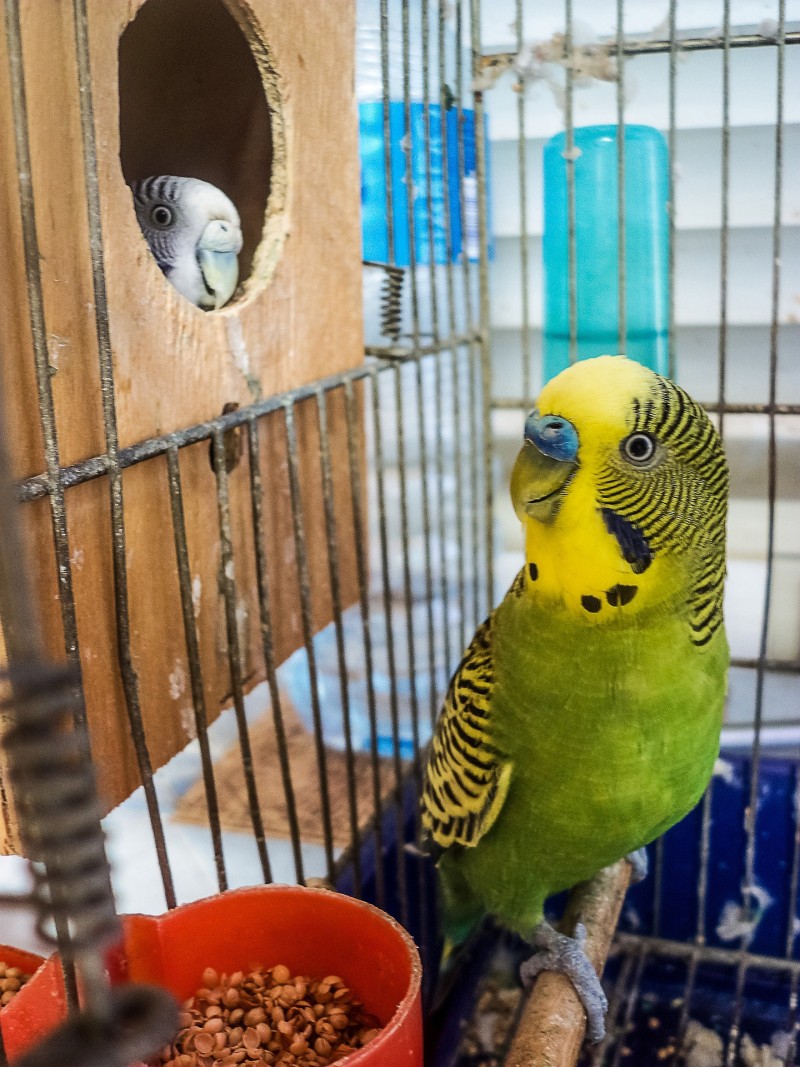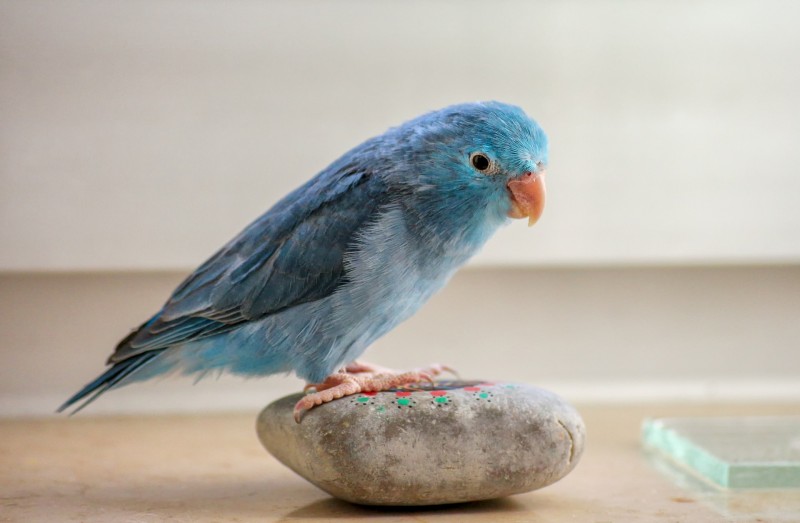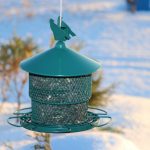
This is a sponsored guest post.
Birds are fascinating for a variety of special traits. We are attracted by their bright colors and beautiful feathers. Perhaps we envy their freedom to launch into the air and flap or soar away from the world. Whatever your reasons for loving birds, maybe you now dream of having one as a pet. There are a few important considerations to keep in mind.
What kind of bird should you buy as a first-time owner?
There are two major classes of pet birds: songbirds and parrots.
Song Birds
The main thing the distinguishes songbirds from pet parrots besides the size and behavior is they have straight beaks with no hooks.
- Finches – Finches usually chirp rather than sing and can be quite chatty.
- Canaries – Although in a different family from finches, they are quite similar.
The males are the ones who sing. They can be fawn, white, or blue, as well as
classic yellow.

Parrots
Parrots come in a wide array of sizes and talking abilities. They all have the potential to make wonderfully interactive pets.
- Small parrots – Lovebirds are among the smallest parrots. Budgies are also in this group.
- Medium parrots – Conures, Quaker parrots, Indian Ringneck Parakeets, and cockatiels are medium in size but still large in personality.
- Large parrots – African Greys, Cockatoos, Macaws, and Yellow-Naped Amazon Parrots are time-intensive highly intelligent birds.

If this is your first bird what kind should you consider?
Regardless of whether you are a first-time bird owner or a seasoned expert, your time commitment is the single most important factor in choosing a bird.
Finches and canaries are great introductions to bird ownership because they require very little interaction with their owners. They prefer to flock together, but you can enjoy watching them. Another big plus is they are quieter than parrots, although they do make noise.
If you are set on a parrot, consider a lovebird or a cockatiel. These birds still possess abundant personalities, enjoy human interaction if you socialize them properly, and yet do not demand quite the attention of the larger parrots. They are also good for responsible children and do not require huge amounts of space.
What supplies do you need?
- Food – Research the benefits of pellets versus a seed blend and vice versa. An exotic pet veterinarian can guide you on supplementing with nutritious treats as well.
- Toys – Birds require as much mental stimulation as dogs and cats. Toys like mirrors, ladders, and swings keep them busy to stave off boredom.
- Cage – Your birdcage must match the size and characteristics of your bird. This means flight room for the tiny finches, climbing space for parrots, and consideration of long tail feathers on some species. Pay attention to the perches and space between bars. Take into account multiple birds if relevant. Make sure you have the appropriate gear to keep the cage sanitary.
What types of behavior can you expect?
Canaries and finches prefer the company of other birds. They may never grow accustomed to sitting on your finger. They make lively companions, however, and can live around ten years.
The larger the parrot the more it relies on you for companionship and activities to stimulate its intellect. Boredom and discontent lead to feather picking and other signs of stress. The larger the bird the larger its voice and not all of the larger parrots will necessarily talk. While macaws are quite smart, they are also very raucous. Try to engage with your parrot outside its cages as much as you can.
What are some health concerns of your pet bird?
If your bird experiences weight loss, abnormal respiration, change in droppings, vomiting, nasal discharge, or abnormal perching, seek immediate veterinary attention.
- Feather picking – Mentioned above, feather picking is not always behavioral.
- Psittacine Wasting Diseases – Mostly seen in Macaws, it presents as vomiting.
- Parrot Fever (Psittacosis) – Contagious to humans and birds, signs are respiratory infection with sneezing, congestion, and runny eyes.
- Aspergillosis – Fungal respiratory infection with respiratory distress, lack of appetite, and increased thirst and urination.

Hi there! I am Emily Evert, the owner of Emily Reviews. I am 28 and live in a small town in Michigan with my boyfriend Ryan and our two pugs. I have a large family and I adore my nieces and nephews. I love reading memoirs, and learning about child development and psychology. I love watching The Game of Thrones, Teen Mom, Sister Wives and Veep. I like listening to Jason Isbell, John Prine, and other alt-country or Americana music. I created Emily Reviews as a creative outlet to share my life and the products that I love with others.
This post currently has 9 responses.
-
This is very helpful information, thank you so much for sharing! I remember my mom always having birds when I was a kid. They can be so fun to have!
-
I’ve had several pets, but never a bird. I like to watch & listen to them outdoors.
-
My kids loves feeding birds. We have several bird feeders and so many birds that comes by daily.
-
I hope to get a parrot once we’re empty nesters. I know birds can be a lot of work but I love watching them on youtube till we’re ready for one.
-
Alot of good information here. Going to share with my brother who has a big red macaw that he named RUBY. She is total spoiled my him but new information all ways helps
-
When I was a small child, Santa brought me two Parakeets for Christmas one year! I felt so loved. This is a great checklist and I now find myself thinking it might be a good time to consider getting another pet bird.
-
When I was a small child, Santa brought me two Parakeets for Christmas one year! I felt so loved. This is a great checklist and I now find myself thinking it might be a good time to consider getting another pet bird.
-
When I was a small child, Santa brought me two Parakeets for Christmas one year! I felt so loved. This is a great checklist and I now find myself thinking it might be a good time to consider getting another pet bird.






This is such a great check list for getting that bird. I did not think of all of those. Thank you for the information.